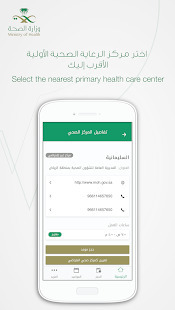Saudi Health Minister Tawfiq Al-Rabiah said digital health technologies will play a central role in the transformation of health services.
He was inaugurating the HIMSS event in Riyadh, which aims to raise awareness about the importance of e-health care and its role in improving performance, services and the use of resources in the health sector.
Addressing the opening session, Al-Rabiah said digital health technologies will play a central role in the transformation of health services envisioned by the Health Ministry.
A large part of the Kingdom’s Vision 2030 reform plan focuses on health issues, he added.
“E-health will be an essential part of this transformation, and will support it so as to contribute significantly to the improvement of health services and streamline access to such health services,” he said.
The Mawid app, which was presented during the inaugural session, is a centralized system that enables patients to book appointments in Primary Healthcare Centers (PHCs) in coordination with the relevant department, Al-Rabiah added.
Through the app, patients can book, amend or cancel their appointments at any hospital to which they were referred, and rate the quality of services provided, he said.
Another app, Seha, provides an online medical consultation service through doctors accredited by the Health Ministry, he added.
Patients can get these consultations via chat, voice or video calls, and evaluate their experience at the end of the consultation, said Al-Rabiah, adding that the ministry is developing electronic medical prescriptions.
“I think artificial intelligence (AI) will play a huge role in the development of health services in the coming years,” he said, adding that the ministry will include AI services in Seha.
Based on experiences outside the Kingdom, AI gives better results than visiting a physician, Al-Rabiah said.
“We appreciate the pivotal role of the physician, which is indispensable, but this technique will reduce pressure on the physician and facilitate access to health services in common diseases,” he added.
Al-Rabiah reviewed an app that remotely and promptly interprets X-ray images, which is already being used in four hospitals. AI will be introduced to make readings more in-depth and accurate, he said.
Al-Rabiah stressed the need to train and qualify health practitioners to use these new techniques, and thanked the SCHS for making such training a prerequisite for obtaining a health practice license.
“The future is brighter with the use of technologies in health services, and the Kingdom will be a leader in this field,” he said.



 Your new post is loading...
Your new post is loading...








To know why did I posted this PR sounding piece, read the ministers quotes in this post.
E-health will be an essential part of this transformation, and will support it so as to contribute significantly to the improvement of health services and streamline access to such health services,
I think artificial intelligence (AI) will play a huge role in the development of health services in the coming years.
Based on experiences outside the Kingdom, AI gives better results than visiting a physician
That last line was surprising, but having come from the esteemed minister, it sounds promising that Saudi Arabia may end up becoming a hotbed for AI use in Healthcare, and end up helping other nations learn from the mistakes and the success that comes with it.